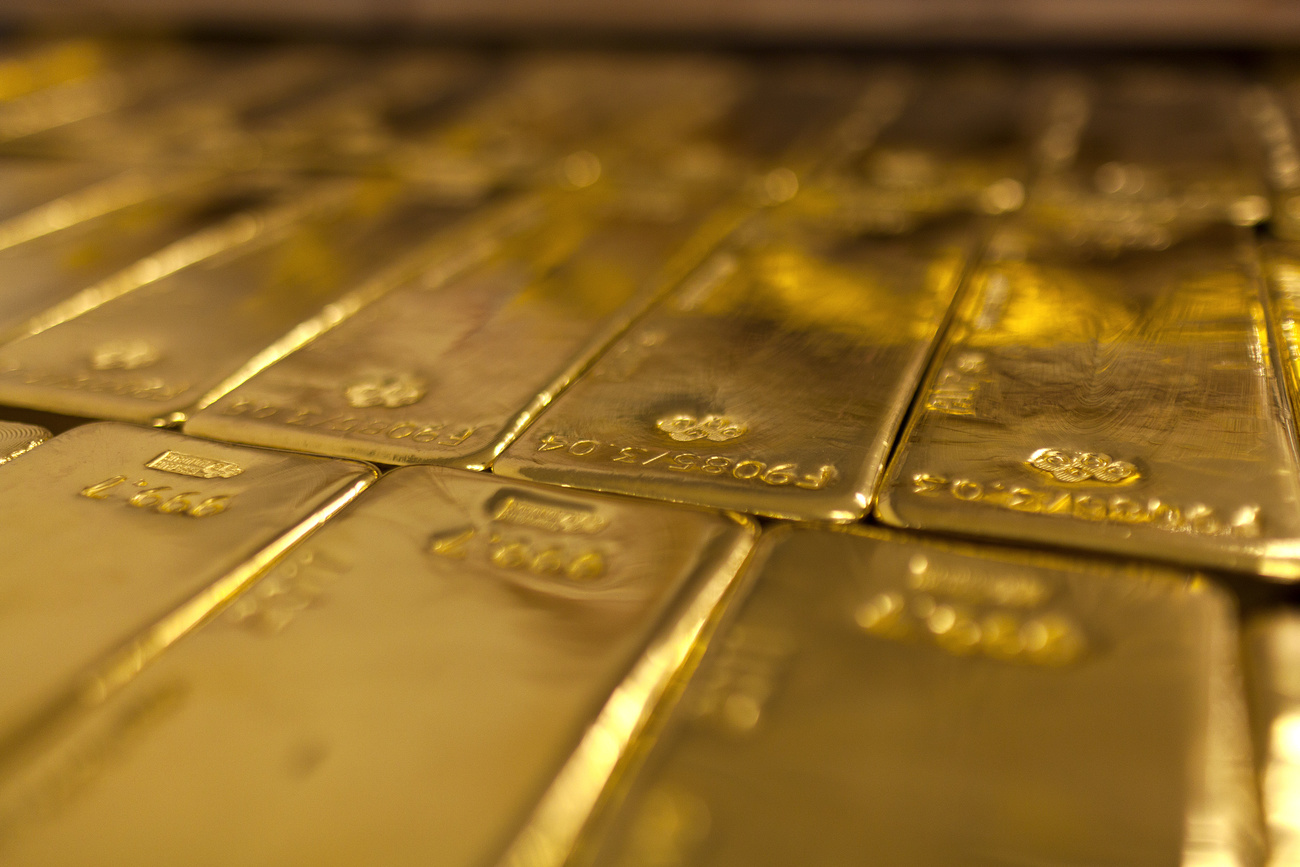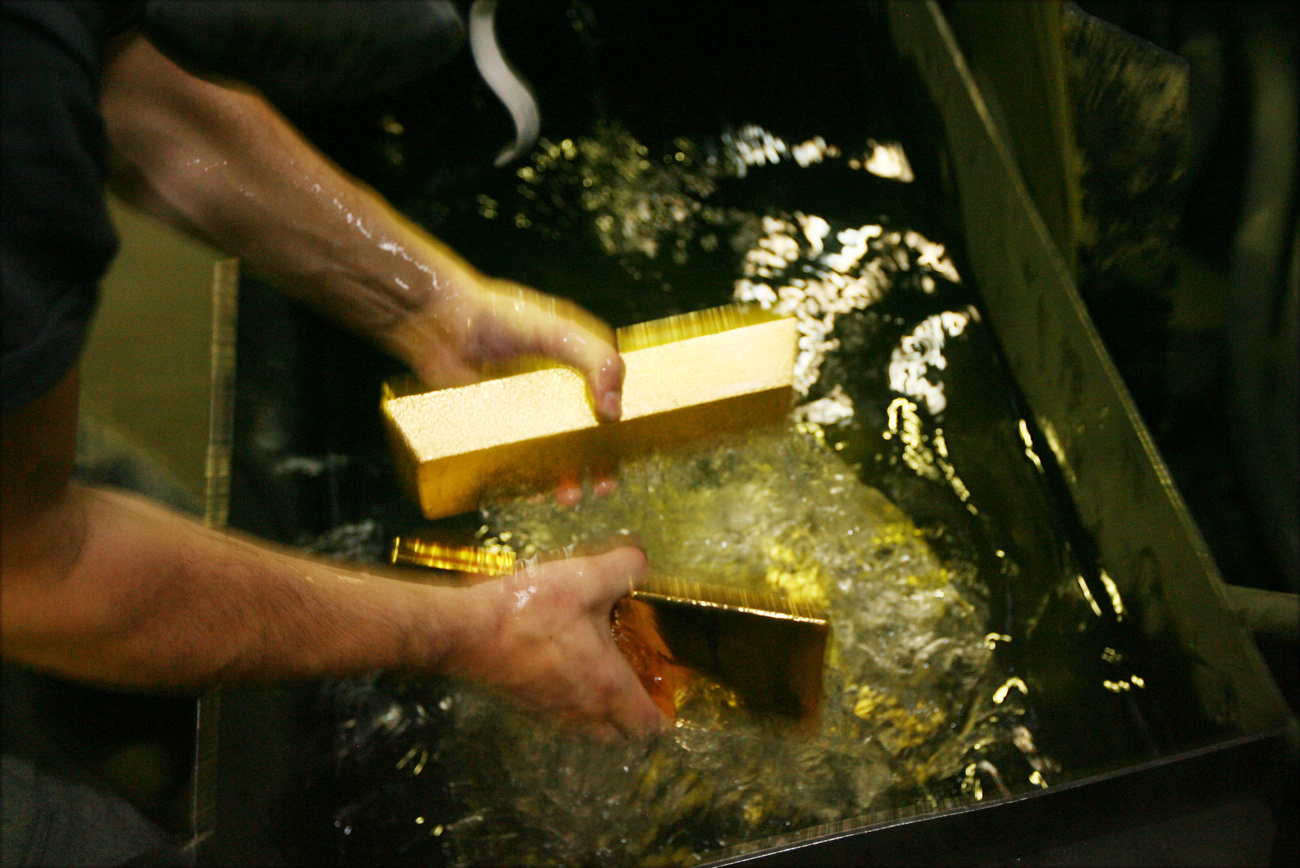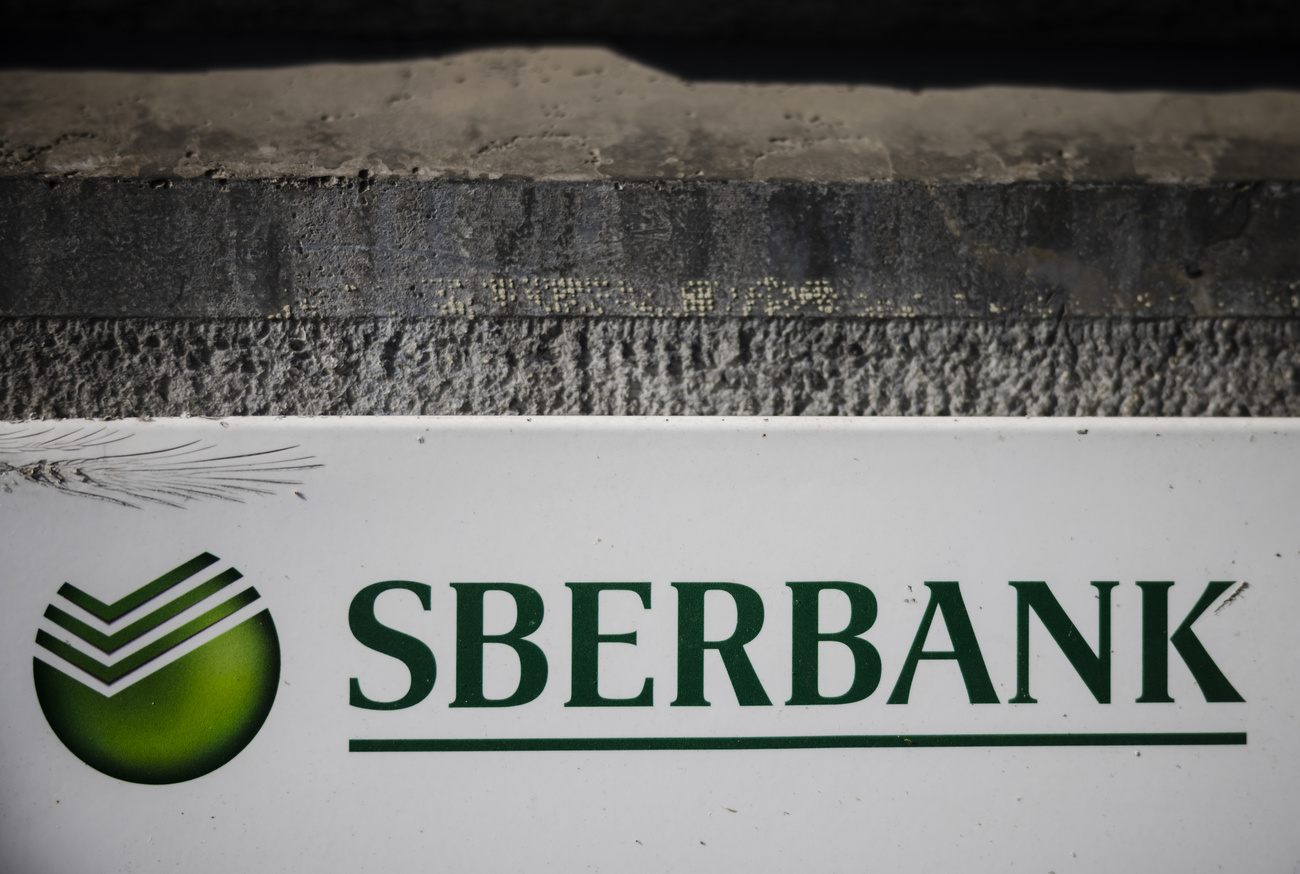
Switzerland takes over EU sanctions on Russian gold

Switzerland, a major global hub for gold, has followed the EU in banning imports of Russian gold as part of new sanctions due to the war in Ukraine.
“The new measures primarily concern a ban on buying, importing or transporting gold and gold products from Russia. Services in connection with these goods are also prohibited,” the economics ministry wroteExternal link on Wednesday.
The measures come into force from 6pm today, August 3.
The decision is in line with the ban on Russian gold made by the European Union (EU) on July 21, the ministry said, and implements “the most urgent measures in terms of time and substance” taken by Brussels. Until now, only exports of gold from Switzerland to Russia had been banned.
The potential impact of the new sanctions on Swiss refineries is unclear: following the invasion of Ukraine in February, imports from Russia have been largely avoided for ethical reasons. Moreover, since March 7, trade of bullion produced by Russian refineries has not been possible in Switzerland, due to a decision by the leading London Bullion Market Association (LBMA).
Reacting to the decision on Thursday, the Swissaid NGO said it was a welcome step, but that more needed to be done to ensure that no Russian gold enters Switzerland via indirect channels – for example after having been further processed in a third country.
Switzerland’s five gold refineries process some 70% of the raw gold mined in the world each year. For Russia, meanwhile, the precious metal represents the country’s most valuable export after energy.

More
Swiss gold imports come under scrutiny as G7 targets Russia
Sberbank freeze
The economics ministry also said on Wednesday that the largest Russian bank, Sberbank, has had its assets frozen and is now banned from providing funds, economic resources, or technical services. “New derogations are being introduced to ensure the orderly wind-down of transactions and the sale of Sberbank subsidiaries,” it said.
The ministry also said that with a view to tackling the global food and energy crisis, and to “avoid disruption to payment channels”, Switzerland has made two new exceptions to sanctions regarding transactions on agricultural products and oil supplies between Russia and third countries. Again this tallies with recent measures taken by the EU.

More
Watchdog extends protective measures at Sberbank Switzerland

In compliance with the JTI standards
More: SWI swissinfo.ch certified by the Journalism Trust Initiative





























You can find an overview of ongoing debates with our journalists here . Please join us!
If you want to start a conversation about a topic raised in this article or want to report factual errors, email us at english@swissinfo.ch.